Just as Greek myths led many astray in ancient times, misconceptions about reverse mortgages in Vancouver can cloud your judgement today.
You might believe they're a scam, or perhaps fear losing home ownership. Maybe you're worried about sky-high interest rates or inheritance issues for your family.
Or you might simply feel that only the desperate opt for such an option. But what if I told you that these notions aren't quite accurate?
Would you reconsider, if you knew the truth might be less daunting?
Let's dissect these misconceptions together and reveal the real face of reverse mortgages.
Key Takeaways
- Reverse mortgages in Vancouver are not scams but require careful selection of a trustworthy lender and understanding of terms.
- Homeowners maintain full ownership rights and can live in their home while accessing equity through a reverse mortgage.
- Interest rates for reverse mortgages depend on various factors and don't necessarily lead to high financial burden.
- With proper planning and communication, reverse mortgages don't create family inheritance issues but can supplement retirement income.
Misconception 1: Reverse Mortgages Are a Scam
Dispelling the myth that reverse mortgages are a scam is crucial to understanding their true function and benefits. It's important to grasp that reverse mortgages, like any financial product, can be misused or misrepresented, leading to the perception of being a scam. However, when you're dealing with trustworthy lenders, they're a legitimate tool to enhance financial security in retirement.
Scam prevention is paramount when considering reverse mortgages. You should be aware of the lenders' reputations, the terms of the agreement, and the costs involved in the loan. Always verify that the lender is approved by the federal government and don't hesitate to ask questions. The more informed you are, the better you can protect yourself.
Trustworthy lenders will be transparent, providing all the necessary information about the loan. They'll explain the terms clearly, ensuring you understand what you're signing up for. They won't rush you into making a decision, and they'll be there to answer your questions.
Misconception 2: You Lose Home Ownership
Another common misconception that often arises is the belief that taking out a reverse mortgage means you'll lose ownership of your home. This is simply not true. In reality, you retain all ownership rights to your home, even after obtaining a reverse mortgage.
Let's contrast this misconception with the reality:
| Misconception | Reality |
|---|---|
| You will lose ownership of your home | You retain all ownership rights |
| Your home will be taken from you | You can live in your home as long as you wish |
| The lender owns your home | You remain the legal owner |
| You will lose all equity in your home | You're still able to retain equity |
| Reverse mortgages strip you of ownership | Reverse mortgages simply allow you to use your home's equity |
However, it's crucial to remember that you're responsible for maintaining your home and staying current on property taxes and insurance. Failing to do so can lead to foreclosure. So, while you don't lose your ownership rights or the possibility of retaining equity, you do have to uphold your responsibilities as a homeowner.
Misconception 3: High Interest Rates Predominate
Despite what you might've heard, it's not a given that reverse mortgages are always associated with high interest rates. Sure, they can be higher than traditional mortgage rates, but it's crucial to understand that the rates depend on various factors such as the lender, the housing market, and your individual circumstances.
Rate comparisons can shed light on this misconception. If you compare reverse mortgage rates with other financial products like personal loans, credit cards, or lines of credit, you'll often find that they're competitive. Yes, they might be higher than some types of home loans, but remember, with a reverse mortgage, you're not making monthly repayments. This flexibility can have significant financial implications.
Think of it this way: a higher interest rate doesn't always equate to a financial burden. When considering a reverse mortgage, you must look beyond the rate itself and consider the overall financial implications. Factor in your ability to live without monthly payments, the increase in cash flow, and the potential to tap into your home equity without selling. So, don't let the fear of high interest rates deter you from exploring the benefits of reverse mortgages.
Misconception 4: It Leads to Family Inheritance Issues
One pervasive myth surrounding reverse mortgages is the perceived negative impact on family inheritance. You may worry that opting for a reverse mortgage could complicate estate planning or contravene inheritance laws. In reality, it's not that black and white.
Yes, a reverse mortgage does require repayment, usually through the sale of the home when the last borrower passes away or moves out. However, it doesn't necessarily mean that your heirs will be left with nothing. If the sale of the home covers the loan balance and there's money left over, your heirs receive the remainder. They also have the option to repay the loan and keep the home.
Inheritance laws in Vancouver stipulate that debts, including reverse mortgages, are settled first before the distribution of assets. Therefore, estate planning should incorporate the potential impact of a reverse mortgage.
It's crucial to have open discussions with your family about your financial decisions. It's also wise to involve a financial advisor or estate planning professional to ensure you're making the best decisions for your situation. Therefore, a reverse mortgage doesn't inherently lead to family inheritance issues, but it does require careful planning and communication.
Misconception 5: Only the Desperate Opt for Reverse Mortgages
Shifting gears, let's debunk the myth that reverse mortgages are a last resort for those in dire financial straits. It's a common misconception that only the desperate opt for reverse mortgages. However, that's far from the truth. In reality, reverse mortgages can be a strategic part of retirement planning, providing financial independence and peace of mind.
Consider this table below, which shows how reverse mortgages can be beneficial:
| Benefits of Reverse Mortgages | Explanation |
|---|---|
| Financial Independence | They provide a steady income stream, allowing you to maintain your lifestyle without relying on others. |
| Retirement Planning | They can supplement your retirement income, particularly for those with significant home equity. |
| Flexibility | They give you the option to choose how you receive your funds – lump sum, monthly payments, or line of credit. |
| Home Ownership | You retain the title and can live in your home for as long as you want. |
Frequently Asked Questions
What Are the Eligibility Criteria for Applying for a Reverse Mortgage in Vancouver?
You're eligible for a reverse mortgage in Vancouver if you're 55 or older and own your home.
But don't underestimate the importance of your credit score. It impacts the loan amount and interest rates.
Also, your home will undergo a property evaluation process to determine its market value.
Remember, the higher your home's value and credit score, the better your chances of securing a favorable reverse mortgage.
It's not as complicated as it's often made out to be.
Can I Apply for a Reverse Mortgage if I Have an Existing Home Loan?
Yes, you can apply for a reverse mortgage even with an existing home loan.
However, don't put all your eggs in one basket. Interest rates impact both loans and could affect your financial stability.
Also, be aware of reverse mortgage limitations. They're based on your home's equity, which might be less if you have a home loan.
Make sure to analyze your situation carefully before making a decision.
How Will a Reverse Mortgage Affect My Tax Liabilities?
You're likely wondering how a reverse mortgage will affect your tax liabilities.
Here's the scoop: generally, reverse mortgages don't have tax implications as the money received isn't considered income.
However, as interest rates accumulate over time, you could end up with a hefty loan balance.
This won't affect your yearly taxes, but it may impact the estate you leave behind.
It's always smart to consult with a tax professional for personalized advice.
What Happens to the Reverse Mortgage if the Borrower Needs to Move Into Assisted Living or Passes Away?
If you've to move into assisted living or pass away, your reverse mortgage becomes due. Typically, your estate sells your home to repay it. If there's a surplus, it goes to your heirs.
However, if your home's value doesn't cover the loan, you won't owe more than the home's value. This situation can affect assisted living costs and has estate planning implications.
It's crucial to understand these aspects when considering a reverse mortgage.
Are There Any Alternatives to Reverse Mortgages That I Should Consider?
Yes, you should consider alternative equity release options to reverse mortgages.
Downsizing is a viable option, where you sell your current home and move into a smaller, less expensive one, releasing equity.
You could also consider home reversion plans or lifetime mortgages.
It's crucial to weigh all options and consult with a financial advisor to understand the implications of each before making a decision.

